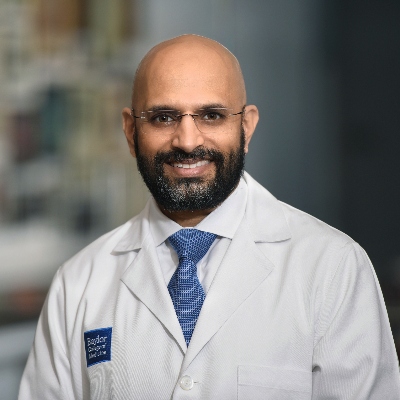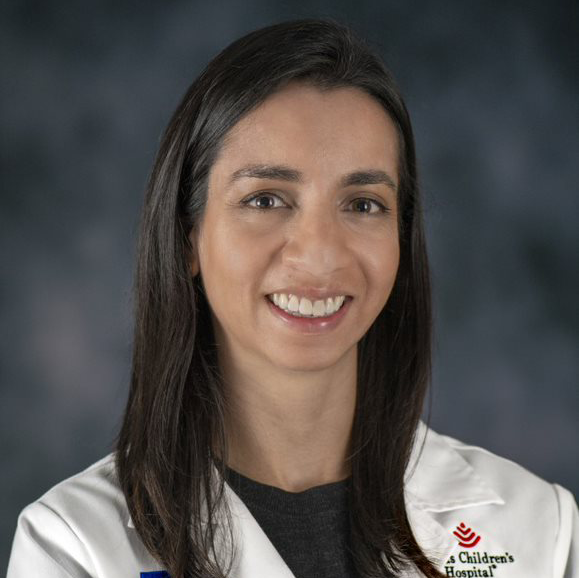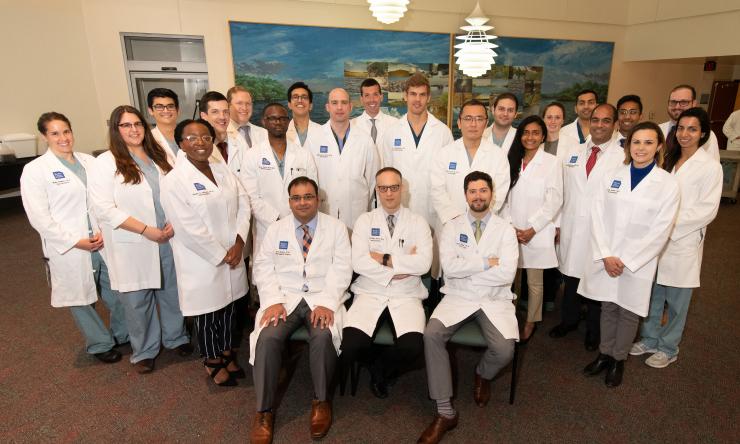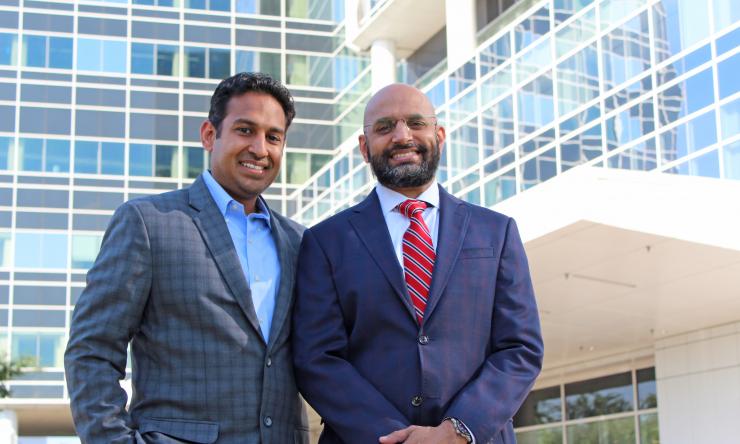Baylor College of Medicine Neurological Surgery Residency Program leadership and residents discuss the program's offerings, our affiliated hospitals, faculty and life in Houston.
About the Program
The Baylor College of Medicine Neurological Surgery Residency Program has a history as one of the largest and most respected neurosurgery training programs in the United States. The program was founded as a nationally accredited residency program in 1958, and has been continuously and fully accredited ever since. Our residency program spans seven years, with four new residents added each year, and includes clinical rotations at five unique hospital sites, all located within the campus of the Texas Medical Center, as well as a dedicated research experience during the fifth year. The research year is supported by the department's NIH R25 grant.
A notable strength of the Baylor College of Medicine Neurological Surgical Residency Program is that it offers truly unique educational experiences at each of its distinct training hospitals. The five affiliated hospitals that form the backbone of the program include: Baylor St. Luke's Medical Center, Ben Taub Hospital, MD Anderson Cancer Center, Michael E. DeBakey Veterans Affairs Medical Center, and Texas Children's Hospital.
Through a carefully designed program curriculum with scheduled rotations at these five hospital sites, our residents are exposed to the full range of neurosurgery, including: cerebrovascular, endovascular, epilepsy, skull base surgery, movement disorder, neurosurgical oncology, pediatric neurosurgery, peripheral nerve, complex spine, trauma, and pain specialties. The extensive surgical and patient facilities of the program's affiliated hospitals provide an excellent environment for training, and offer exposure to state-of-the-art neuroendovascular suites with three-dimensional reconstruction of angiography, intraoperative MRI and CT scanners, adult and pediatric level 4 epilepsy monitoring units, intraoperative microelectrode recordings, and many other technologies.
It is our commitment in the Department of Neurosurgery to train residents to become highly skilled, compassionate, and ethical neurosurgeons who become leaders in the field, both in academics and private practice.
Meet Our Team
Admissions and Benefits
Neurological Surgery Residents
Our neurological surgery residency program is a seven-year training program and is approved for 28 residents. We match four residents per year.
Residency Leadership
Learn why our residency program offers one of the most comprehensive experiences in neurosurgical education.















